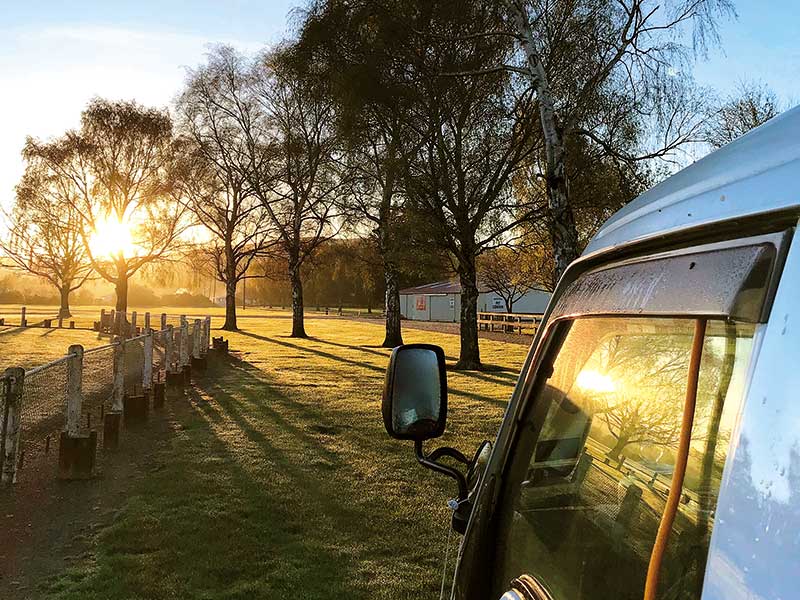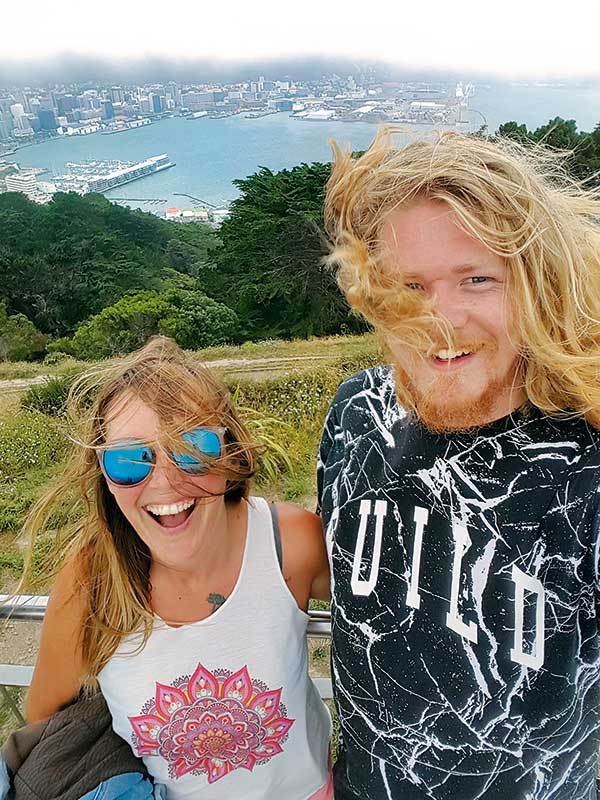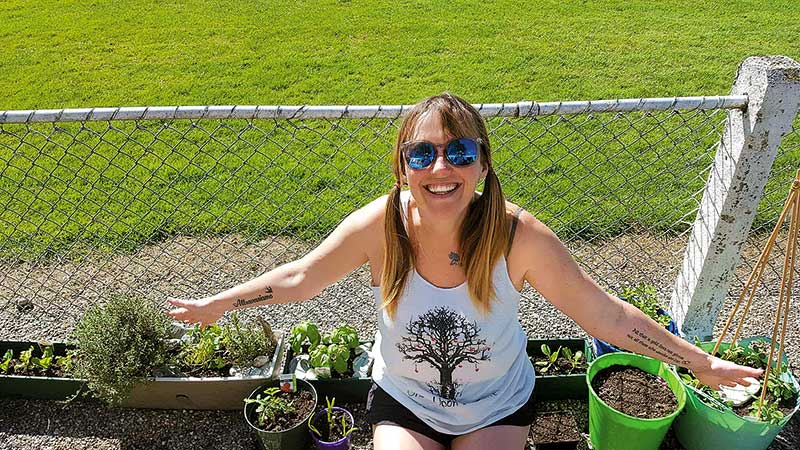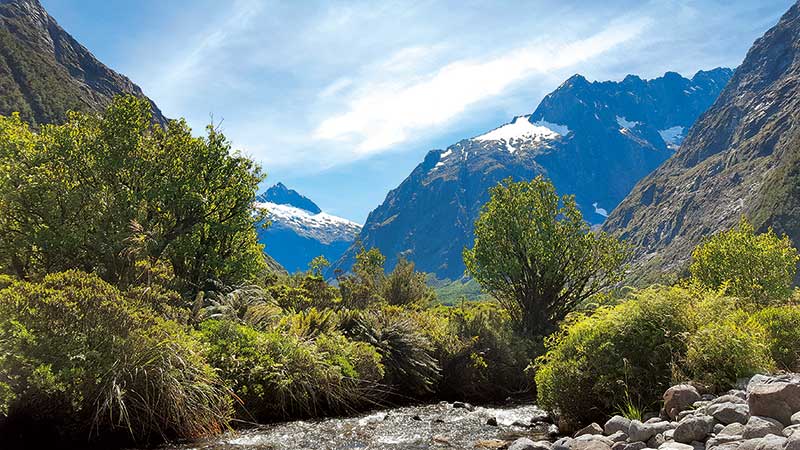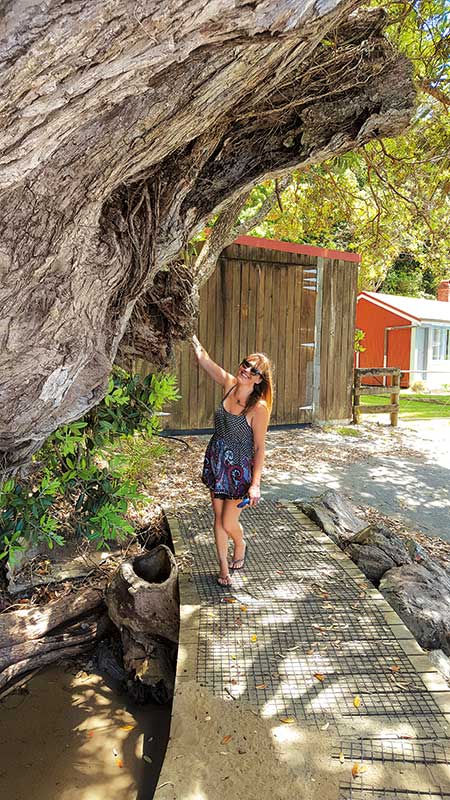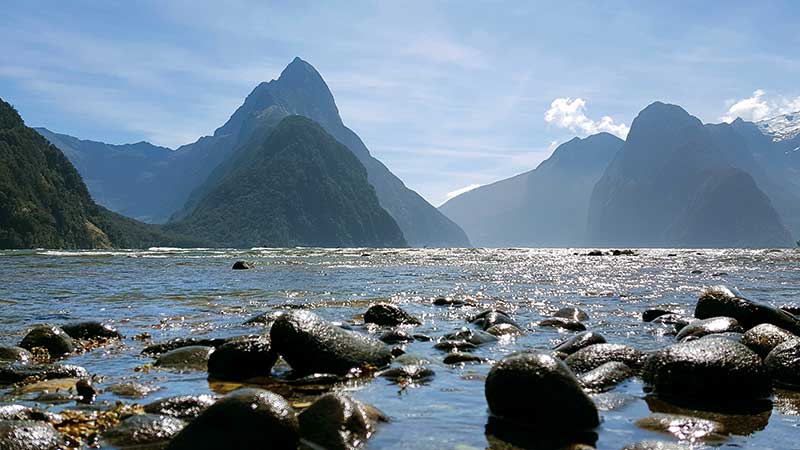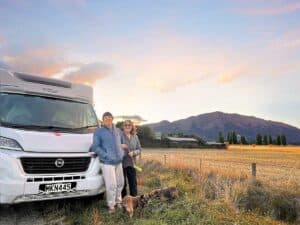This time last year, I was a nervous wreck. I’d sold my house in just nine hours of it going on the market, got rid of almost everything I owned in the five weeks that followed, and was about to bundle what little I had left in a campervan with an old, sick dog and a rather large Welshman.
This was it; this was all we had now. We were in effect, quite literally homeless. I had all the camping experience of a single week in the Isle of Wight when I was 14 and had never so much as spent a night in a vehicle before, yet here I was about to embark on a permanent life in one.
I tried to ignore the voice in my head; the one that persistently yelled, ‘What are you doing?’ and resigned myself to the fact that there was no going back. This was my life now. I thought I had given up everything. I was wrong.
From Cape Reinga to Bluff
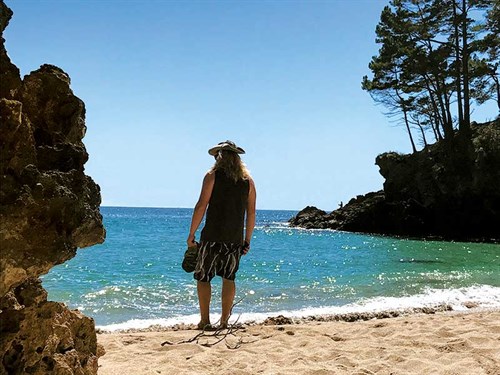
As I sit here writing this in the campervan I now call home with genuine fondness, I am happier and more content than I’ve ever been in my life.
This past year we’ve travelled from Cape Reinga to Bluff and countless places in between. I don’t think anyone can possibly imagine the incredible beauty and diversity of this country unless you get out and explore it for yourself.
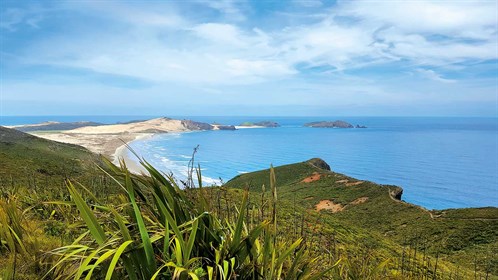
Despite hailing from the Coromandel Peninsula, an area of stunning natural beauty, I’m embarrassed to admit that in the past, I thought a lot of New Zealand images were Photoshopped.
Nowhere could possibly look that perfect! It wasn’t until I saw the jaw-dropping South Island that I realised it was real.
Doing what matters
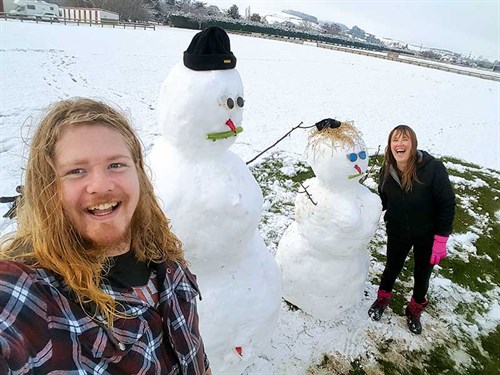
It goes without saying that I don’t miss bills—who would? As for housework, it’s pretty much non-existent. I can see now that when I lived a ‘normal’ life in a stationary house in an environment that never changed, I wasted a lot of time worrying unnecessarily and doing things that weren’t important. Why do we insist on setting ourselves these impossible, never-ending to-do lists?
I guess, back then, it was all I had to occupy my time staring at the same four walls. It took me a few months to get out of the habit, but these days I spend my time counting my blessings, not ticking off chores.
Rookie motorhomers' mistakes
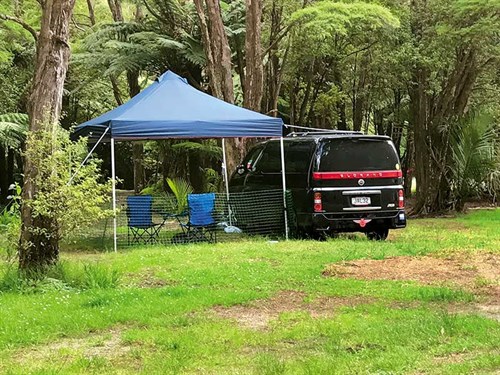
It also took us a while to learn that living on the road permanently is different from camping. This led to some expensive mistakes, such as the $400 barbecue we didn’t have room for and the enormous gazebo and roll of netting to make a playpen for the dog. After two months of lugging them all around, it was obvious that Minnie was blissfully happy being wherever we were and wasn’t going anywhere.
Our biggest mistake, however, was in regard to food. Despite being capable cooks, for some reason, we thought that living on the road meant limiting ourselves to dining out of tins and packets.
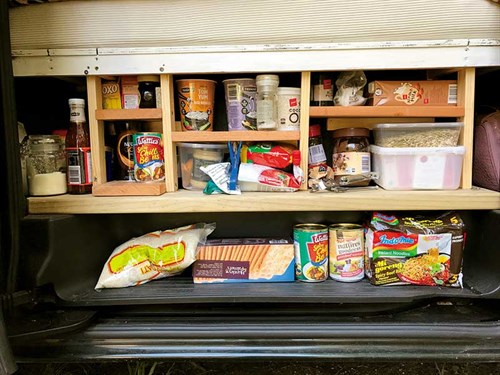
After four months, we were not only sick of tinned tomatoes, salsa beans, and two-minute noodles but our restricted diet was also making us feel dreadful. It sounds ridiculous now but back then, we had so much to learn. This was an area we were anxious to improve on. After all, who wants to be sick when you live in a van?
In the months that followed, we became far more health-conscious and, over time, have transitioned into an entirely vegan diet. We made it through the entire winter without so much as a sniffle and are healthier now than we’ve ever been.
Travelling with the dog
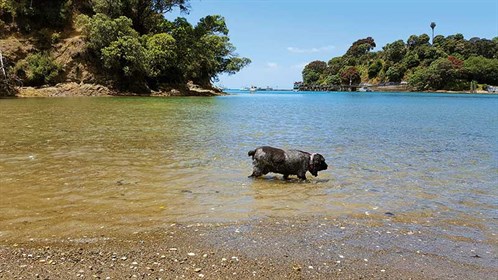
It hasn’t just been us who have benefited from a change of lifestyle. Minnie, our 10-year-old spaniel, had struggled with health issues for most of her life. After a few months on the road, however, she began losing weight and becoming a lot more active. These days, there’s no stopping her.
Just like us, she loves her home on wheels, but more importantly, we have a far closer relationship with her now than we ever did living in a house. Sure, sometimes travelling with a dog can be a little restricting. We can’t always see and do all the things we would like all of the time. But that’s another thing we have learned about living on the road—there’s no rush.
As one couple informed us, after 43 years of living in their bus, they still haven’t seen everything. We have all the time in the world to re-visit any places we’ve missed and love not being tied to anywhere. We can be wherever we need to be.
Making new friends
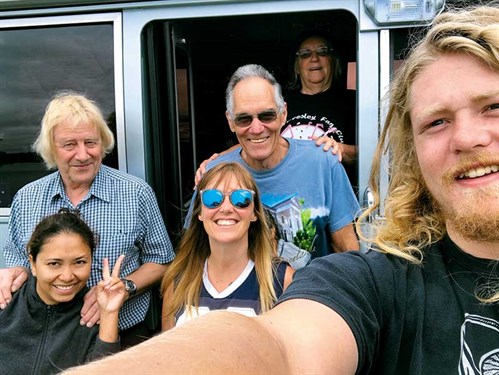
What I’ve loved most about this past year is the people we’ve met along the way. Some have stopped for no more than a brief chat; others have gone on to become dear and valued friends, but everyone makes their own impression and has a story to tell.
There’s no greater joy than having a good old chinwag with someone who lives the way you do, and there’s always something new to learn. Thank you, in particular, to all the readers who have taken the time to come and say hello. It’s been a pleasure meeting you.
We especially enjoyed talking to a couple in their 70s, who sold up and embarked on a life on the road two months ago. Their only regret is the same as mine—not doing it years ago.
Which brings me to my last and most important tip.
I receive letters often from people wanting to ‘take the plunge’ and do what we and thousands of others all over New Zealand are doing but feel that they can’t because of whatever reason. My advice to you—don’t just dream it, do it. Life is too short.
Valuable lessons learnt on the road
When it comes to life on the road, you can never know too much. Here are some of the valuable lessons we’ve learned in the past year.
- It’s OK to stop. Putting pressure on yourself is a hard habit to break, but that’s not what this lifestyle is about. When we first hit the road, we were spending hours driving every day or two in an attempt to cover more ground and were often sad to leave a new place we liked so soon. The silly thing was, we didn’t have to. Just because you live in a mobile home, doesn’t mean you have to be constantly on the move. People often spend weeks, months, even years parked up in one place. It’s all about finding what you like and what suits you.
- You’re not going to miss your old stuff. If there’s one thing I wish I could change, it would be putting so much of our stuff in a storage shed at the other end of the country. After a year living without it on the road, we know that we definitely do not want or need any of it again, yet we are stuck paying $120 a month to store it until we can go back up north to sort it out. Only keep what is truly irreplaceable (e.g. not plastic laundry baskets like I did), and if you can find somewhere free to store your belongings, so much the better.
- Become a weather nerd. I never took any notice of the weather when I lived in a house. It didn’t matter when I was always inside, but now we are so much closer to nature that I always pay attention to how the weather is going to be. This has proved valuable countless times and makes things much easier when planning anything—from travel routes and days, to what to cook for dinner.
- Choose items that will last. As mentioned, living on the road permanently is not the same as camping. You’re going to be using these things all the time, so it pays to go for quality and not something that’s only intended to do the job for a couple of weeks a year. Rather than shop in the camping aisles, we purchase things such as cooking equipment (including gas or electric hob) and crockery/utensils from ‘normal’ stores, just as you would in a house. Our twin-hob stove cost just $29 from Kmart’s kitchen department and is brilliant.

